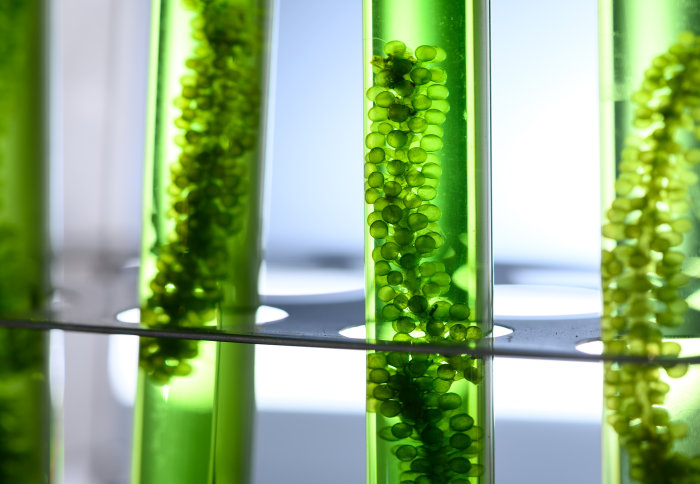Using Life Cycle Assessment (LCA) to compare conventional and advanced biofuels

Helen Finney graduated from Imperial's MSc Environmental Technology in 2019; here she reflects on her Master's research project and internship.

Following undergraduate studies in Biology at Imperial, Helen Finney continued her studies at the Centre for Environmental Policy (CEP). Her interest in the science-policy interface, particularly in bridging research-implementation gaps, led her to follow the Environmental Economics and Policy Option of CEP's MSc Environmental Technology.
During her Master's research project Helen had the opportunity to work jointly with E4Tech to analyse the potential environmental impacts of conventional (food crop based) and advanced (non-food biomass based) biofuels. She also explored the utility of Life Cycle Assessment (LCA) approaches in policy design and evaluation more broadly, and considered future perspectives in the LCA field.
In this short Q&A Helen spoke with Imperial's Life Cycle Network about her research.
Why did you choose to work with the LCA methodology for your MSc thesis project?
I was interested in finding out more about how it could be used as a tool to understand whether different policy decisions lead to effective change. For example, to successfully promote societal shifts towards products that have superior environmental performance over their whole life cycle.
I felt frustrated and surprised by the fact that regulations can change product demand, yet sometimes these changes do not consider the impacts over the entire life cycle of a product, and the environmental, societal or economic trade-offs or gains that occur as a consequence.
Conducting LCAs also entails using technical software, and I particularly wanted to learn how to use SimaPro LCA software to a high level. Besides the fact that SimaPro is one of the most widely used LCA tools in Europe, learning new software and discovering the best cutting-edge tools to analyse data is something I enjoy doing.
What are the benefits of the life cycle concept and its related methodologies?
I think the Life Cycle concept is very important. How are we as a society meant to work towards tackling major challenges such as climate change, if we don’t fully understand the different impacts of products across their whole supply chain? LCA offers a methodological framework to provide initial answers to these questions, by enabling us to first understand the impacts across the whole life cycle of a product or system.
What were the main aims of your MSc thesis project?
Conventional biofuels originally presented an exciting solution to minimising Greenhouse Gas (GHG) emissions from the transport sector. However, they also sparked fierce debate regarding their negative impact on the water-energy-food nexus. The more recent emergence of advanced biofuels, has the potential to overcome some of these trade-offs. This is because in the case of advanced biofuels, the biomass used can come from agricultural and animal waste, minimising competition with food crops. This potential is reflected in EU policy, with the recent revised Renewable Energy Directive (EU) 2018/2001 now capping conventional biofuel allowances and incentivising the use of advanced biofuels.
Understanding the success of this policy change hinges on evaluating how advanced biofuels compare to conventional biofuels across their whole supply chain, i.e. the full life cycle, in terms of reduced GHG emissions as well as other environmental impacts. Comparing them is important, as advanced biofuels require different technology to extract useful energy from the feedstocks. However, few LCA studies to date have evaluated these impacts.
The main aim of my thesis project was to carry out a comparative LCA of the production of conventional and advanced biofuels using best available LCA approaches. I also modelled direct and indirect land-use changes and soil carbon emissions, which have been shown as significant in determining carbon fluxes, but are often not included in the few studies that have been published.
The second aim was to evaluate the practicality and accuracy of using LCA approaches for biofuels, and to discuss future perspectives and areas of improvement for the application of the LCA methodology.
What were the main outcomes of your project?
The thesis identified both the impacts of the different fuel pathways, and the largest process contributions. It also identified novel improvement hotspots. For example, in the case of advanced biofuel produced from woody chips, zinc concentrate was a large contribution to resource use impact and sulfuric acid pre-treatment hugely impacted acidification – these were impacts that had not been previously highlighted. Interestingly, it also indicated that net GHG savings from advanced biofuels may actually be lower than previously documented, bringing into question policy design.
The other main takeaway from this research was the broader utility of LCAs. In my research I faced challenges such as the application of uncertainty analyses, determining system boundaries and also issues to do with the robustness of using existing LCA datasets. Nevertheless, the project also presents insights that may prove useful in tackling these challenges to improve LCA application. Improved application of multiple Monte Carlo uncertainty procedures and hybrid LCAs, for example, will help design and improve policies in the public sector and enhance strategic decisions in the private sector.
I strongly believe that if the development of LCA software improves the ease at which practitioners can integrate these new perspectives, the results that ensue could be transformative for policy-making.
Tell us more about working with E4Tech...
During my MSc project I was able to intern at E4Tech - an international strategic consultancy focused on sustainable energy. I helped undertake research and analyses using SimaPro and gained key insight into broader EU-level LCA project work in the private sector. All in all, it was a really great experience, and I was able to contribute to and learn more about their work.
So what's next?
I recently started as an Analyst Consultant at Ricardo in the environmental policy, strategy and economics practice. Currently I’m working on an interesting project analysing options to decarbonise the shipping sector by 2050. I’ll also be analysing impacts of regulatory changes - for example, the International Maritime Organization (IMO) change in the global maximum shipping sulphur limit (3.5% m/m to 0.50%) coming into effect on the 1st January 2020.
Working in a consultancy focusing on environmental policy analysis will enable me to be involved in projects that have wide-reaching implications and that make positive changes for both society and the environment on a national and international scale. It will also enable me to combine the quantitative research and policy making skills I have learnt from both the MSc course and the thesis project.
Article text (excluding photos or graphics) © Imperial College London.
Photos and graphics subject to third party copyright used with permission or © Imperial College London.
Reporter
Dr Mireille Rack
Centre for Environmental Policy